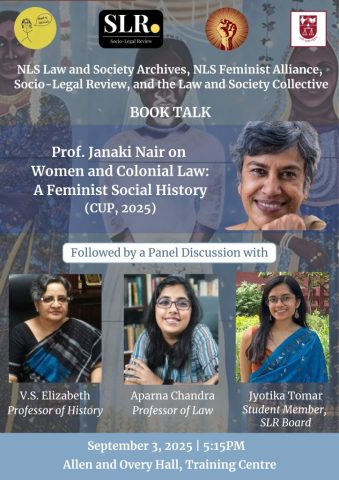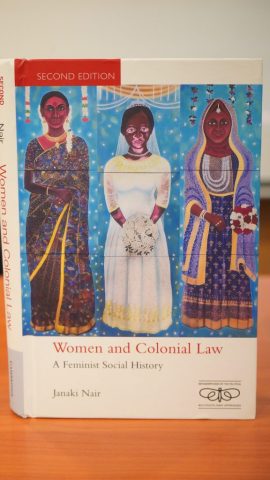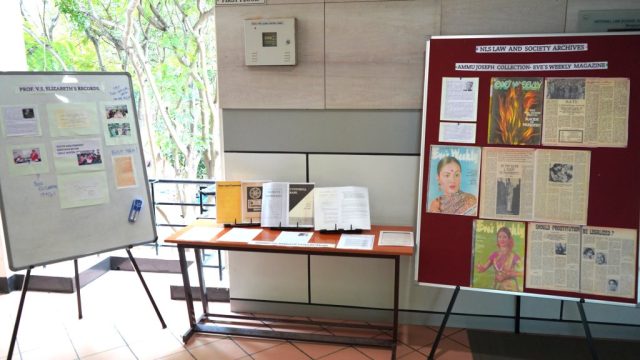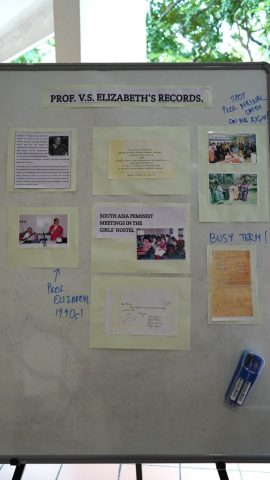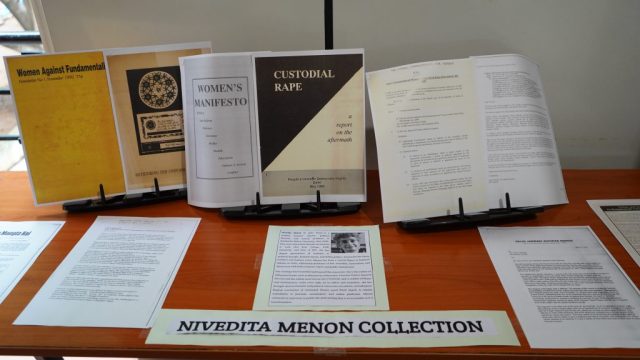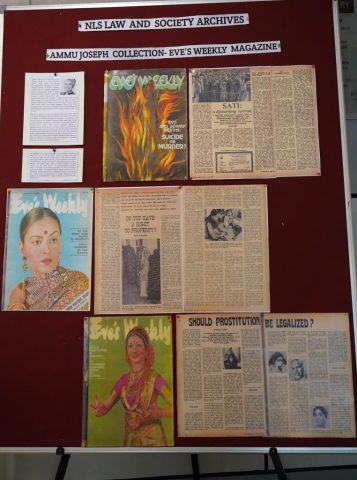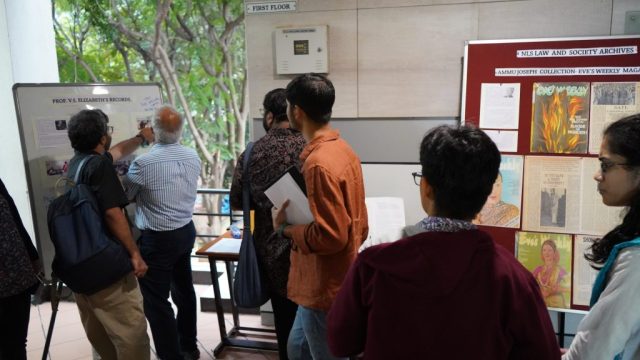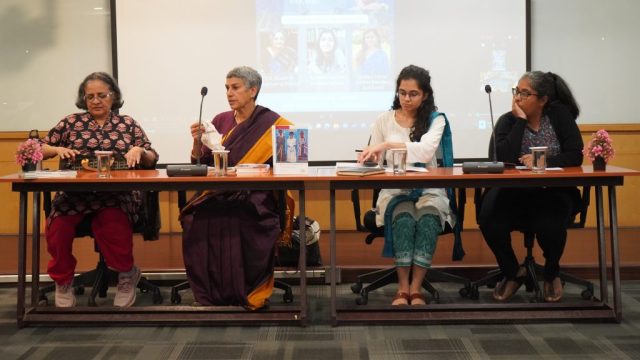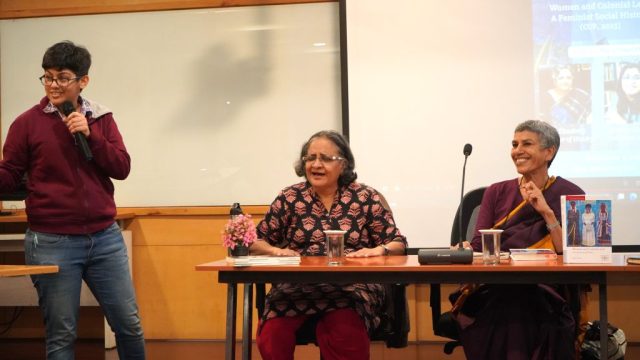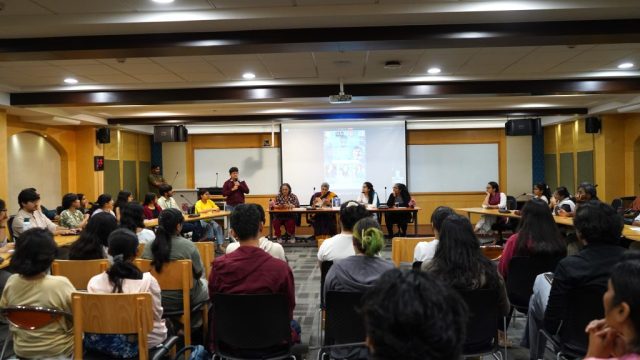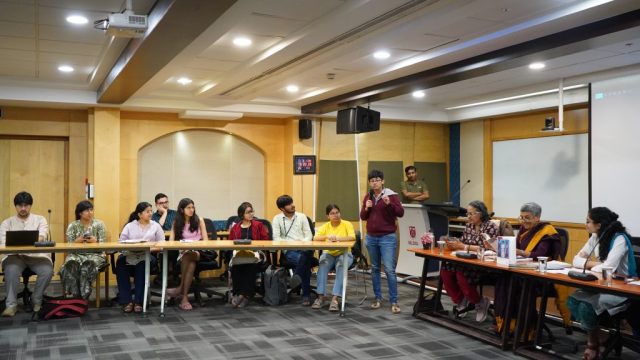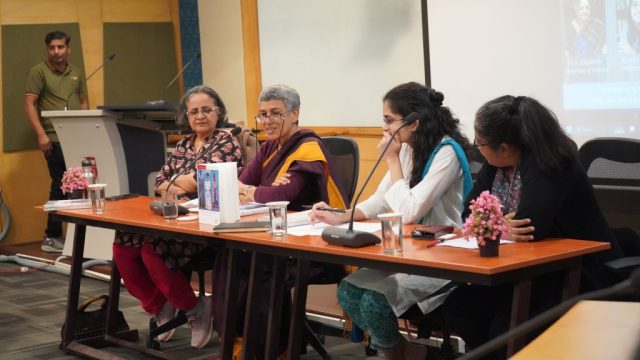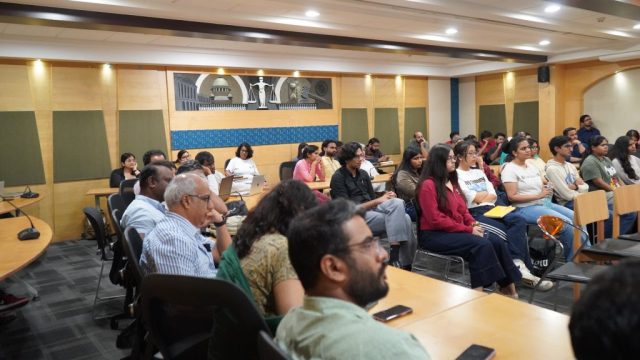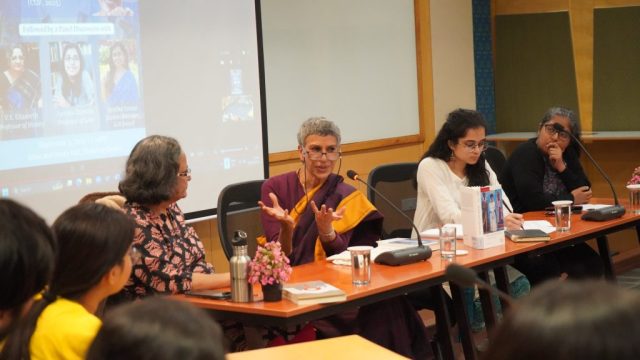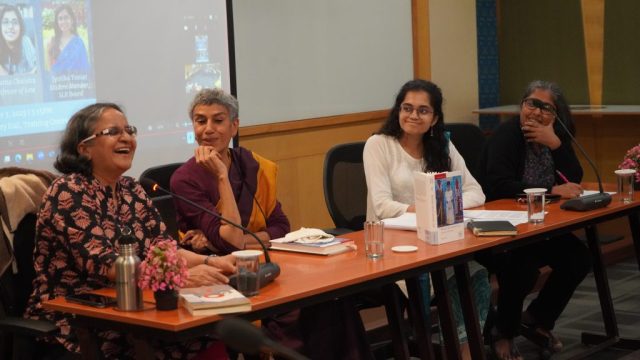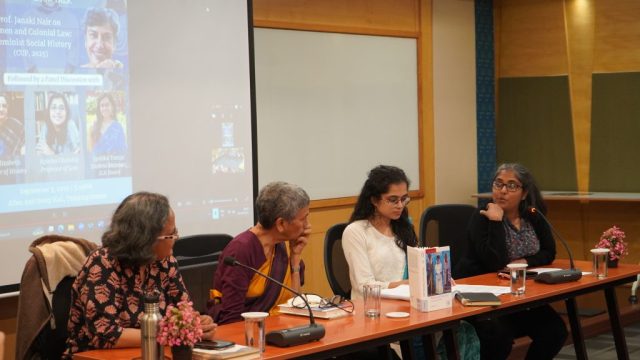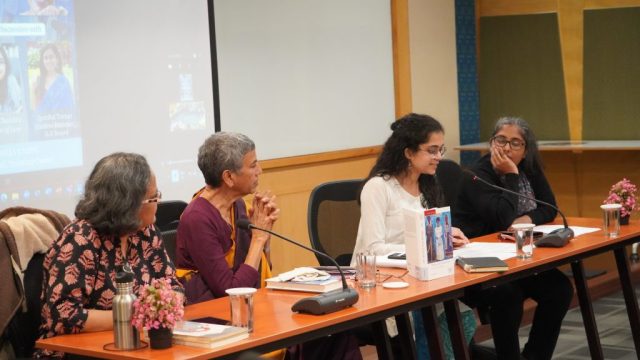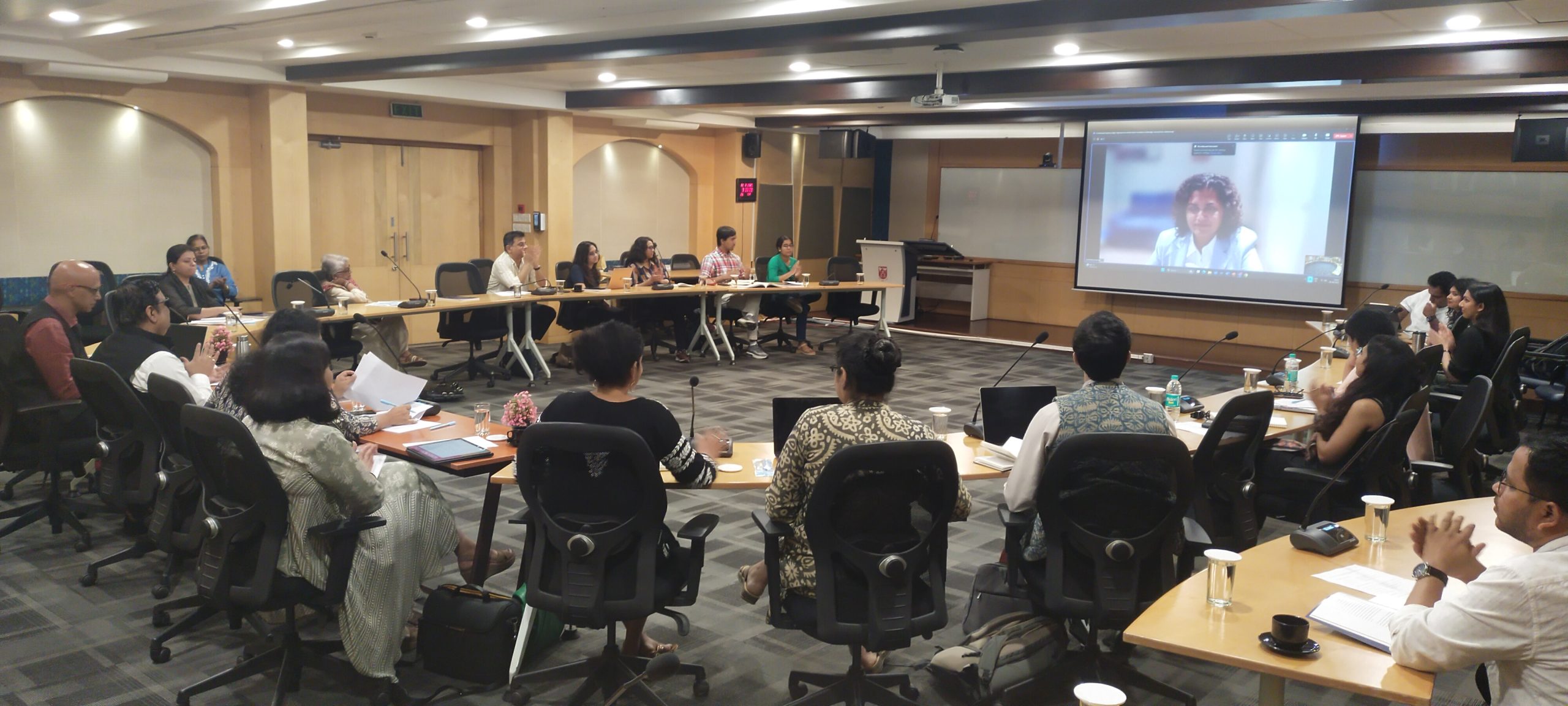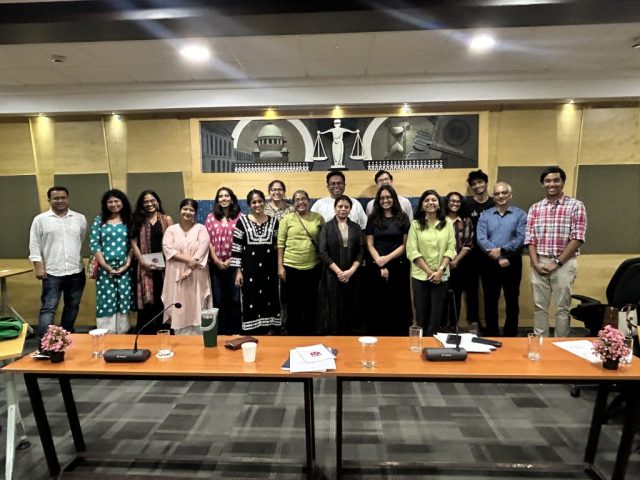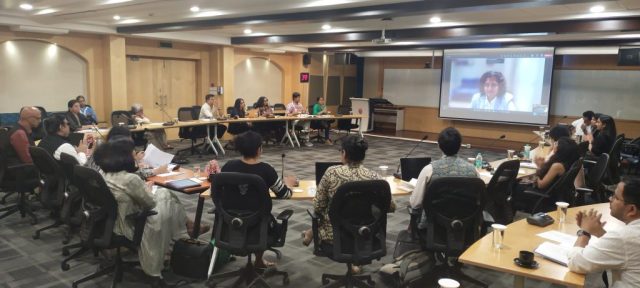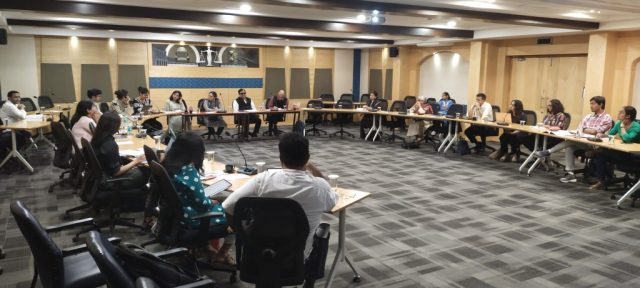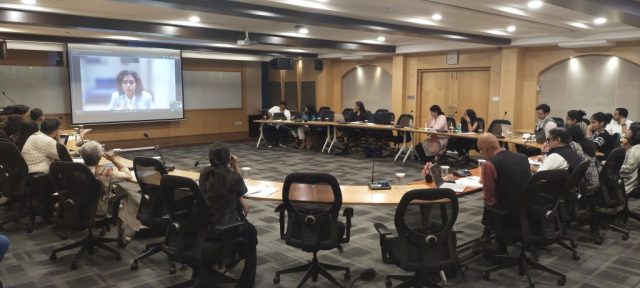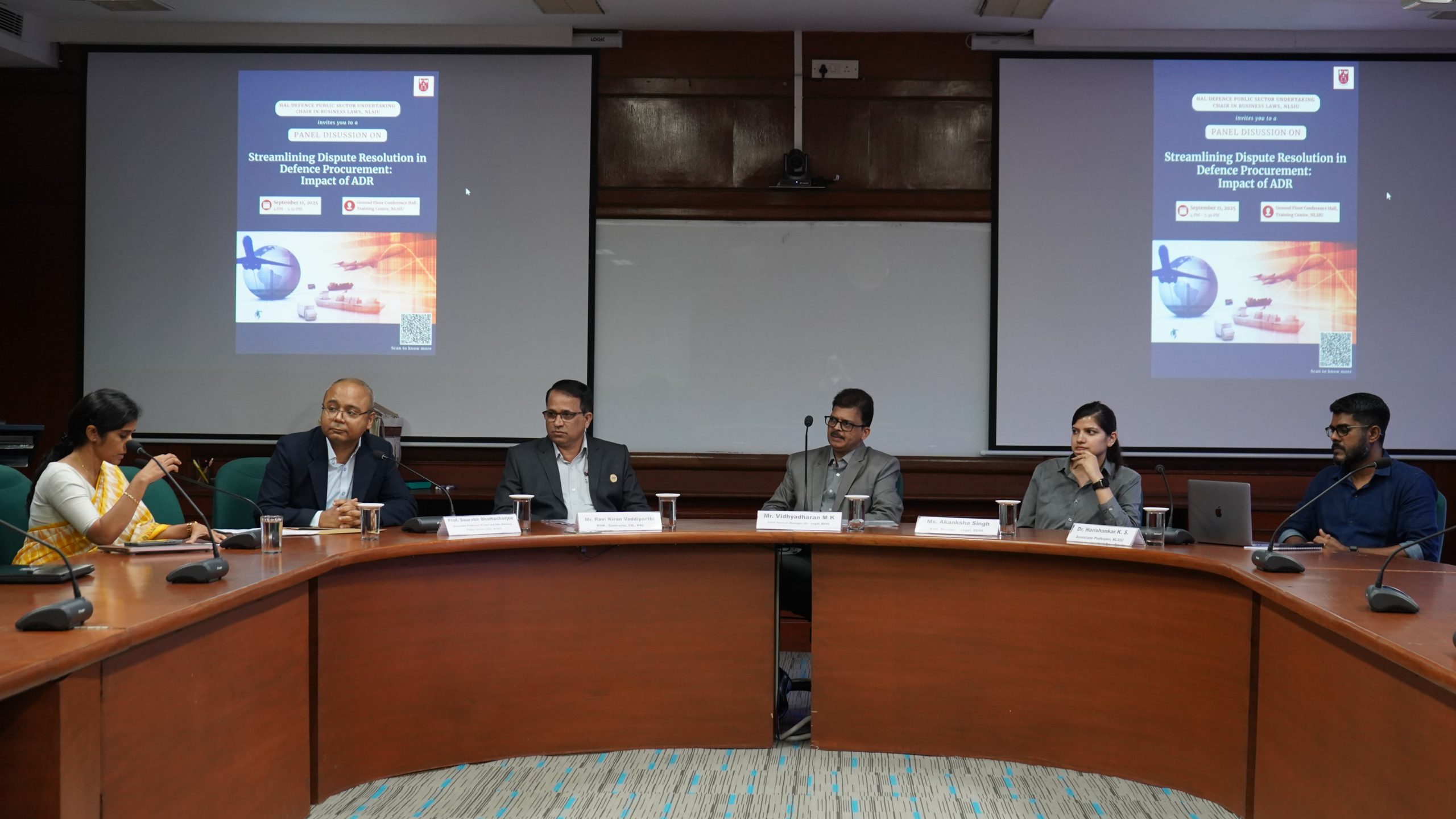 NLSIU’s HAL Defence Public Sector Undertaking (DPSU) Chair in Business Laws organised a panel discussion on the theme ‘Streamlining Dispute Resolution in Defence Procurement: Impact of ADR’ on September 11, 2025.
NLSIU’s HAL Defence Public Sector Undertaking (DPSU) Chair in Business Laws organised a panel discussion on the theme ‘Streamlining Dispute Resolution in Defence Procurement: Impact of ADR’ on September 11, 2025.
About the Panel
This panel discussion examined the evolving dispute resolution landscape in defence procurement contracts with a focus on the role of arbitration and mediation in defence acquisition disputes. It also explored recent developments, challenges, and best practices in the field.
Panellists:
- Mr. Ravi Kiran Vaddiparthi, DGM (Contracts), CO HAL:
- Mr. Vidhyadharan M K, Chief General Manager (O) Legal, BEML
- Ms. Akanksha Singh, Assistant Manager, Legal, BEML
- Dr. Harishankar K. Sathyapalan, Associate Professor, NLSIU
About the Panellists
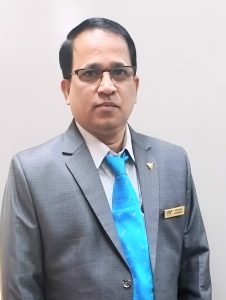
Mr. Ravi Kiran Vaddiparthi
He is currently working as Deputy General Manager, Contracts at Corporate Office, Hindustan Aeronautics Limited (HAL), Bengaluru.
Ravi was born and brought up in Visakhapatnam. He holds a Bachelor’s degree in Commerce (B.Com.) and a Bachelor’s degree in Law (B.L. from Andhra University, as well as a Post Graduate Diploma in Industrial Relations and Personnel Management (IRPM) from Bhartiya Vidya Bhavan. He has practiced as an Advocate at the Visakhapatnam Bar Counsel in the fields of civil law, labour law and consumer law, and has handled several litigations of PSU’s, banks, private individuals, including matters related to arbitration, real estate, land acquisition, matrimonial disputes, matters relating commercial contracts (tenders), etc., before tribunals and forums. Due to his keen interest in corporates, he joined ABB, an MNC in Bengaluru in 2004, handling national and international commercial contracts for the Asia-Pacific region. He extended his support in the fields of legal and contract management, handled several construction (highways), power substations, metro projects including DMRCL, Jaipur Metro, BMRCL with 750 DC, Commercial Contracts.
For more than a decade, he has worked at the HAL Corporate Office supporting all types of aircraft projects (fixed and rotary wing) like LCA, LUH, ALH, HTT-40, Do-228, Hawk, Su 30, MIG -29 etc including overhaul, aerospace, procurement of different engines, negotiating and finalising commercial contracts with vendors, OEMs. This included export business of HAL to several countries, consultancy services, non-consultancy services, supply chain issues and more. He has been instrumental in finalising long-term contracts i.e., General Term Agreements, with several original equipment manufacturers (OEMs) for doing ease of business.
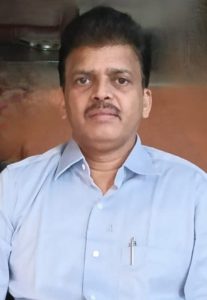 Mr. Vidhyadharan M K
Mr. Vidhyadharan M K
After completing his B.Com., Vidhyadharan pursued Law from Government Law College, Calicut and enrolled with the Bar Council in January 1995 as an Advocate. He started his practice in the Office of the District Government Pleader and Public Prosecutor dealing with cases by and against the government including criminal matters involving State and continued till 2000. Following that, he was appointed as Probationary Law Officer in Canara Bank, through the Banking Service Recruitment Board, and served in that position till 2009. While in Canara Bank, he got opportunity to associate with the formation of Mediation Centre at Nyaya Degula, Double Road, Bengaluru in 2007. He headed the legal section of Canara Bank at its Head Office as Manager (Law). In October 2009, he joined BEML Limited, a defence PSU, and has headed its Corporate Legal Cell since. He has dealt with matters before the Supreme Court of India, High Courts, Civil Courts, Criminal Courts, Labour Courts, Industrial Tribunals, CAT, CGITs, Consumer Commissions, etc., across India. He has dealt in ad-hoc/institutional arbitrations including international arbitrations, statutory arbitrations like MSMEDA, Lok Adalats, mediation, conciliations. He has also dealt in matters before the FEMA cum PMLA Tribunal and Appellate Tribunal, Electricity Regulatory Authority and Appellate Authority, CLB, NCLT, NCLAT.

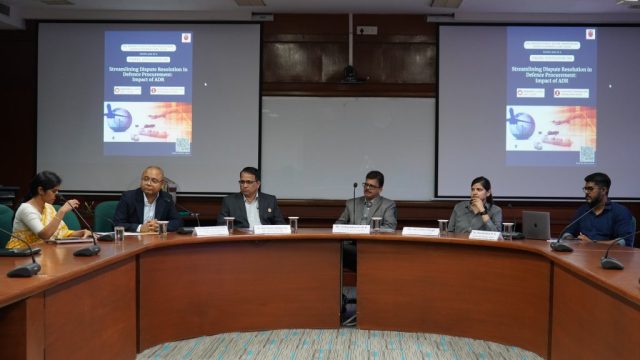
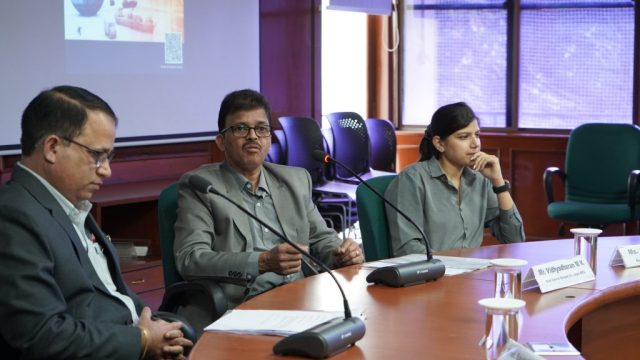
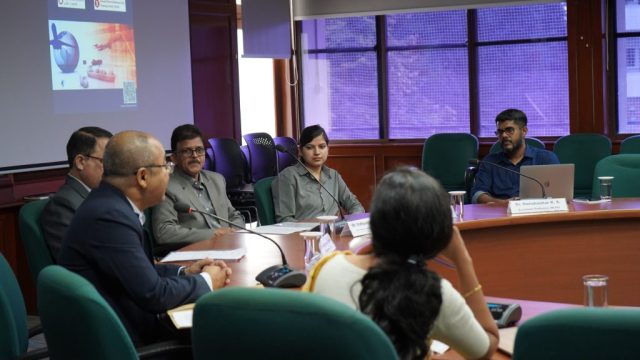
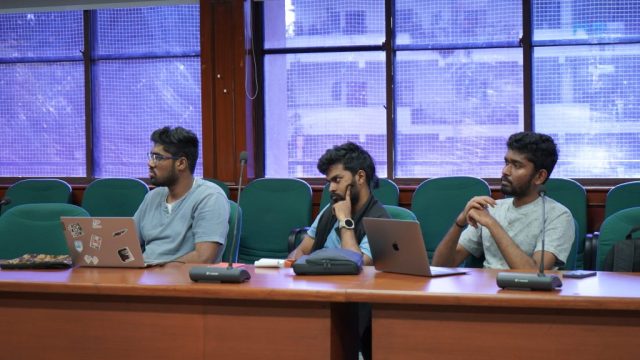
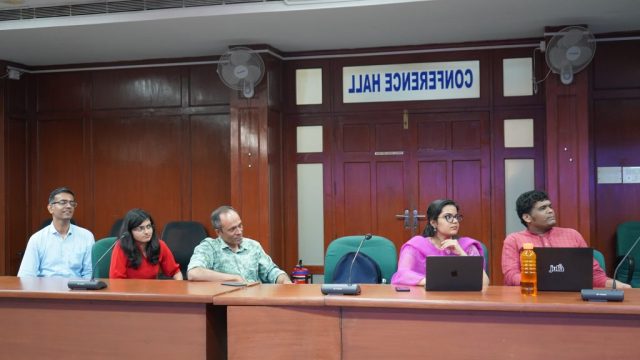
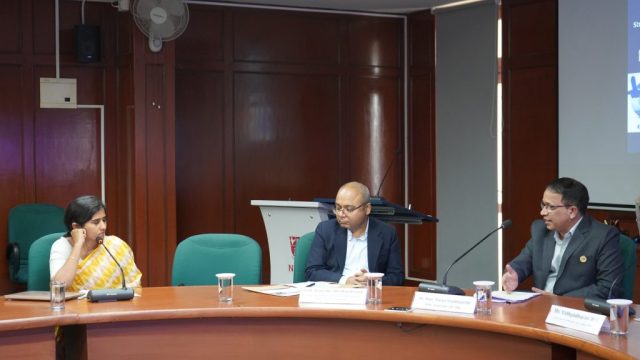
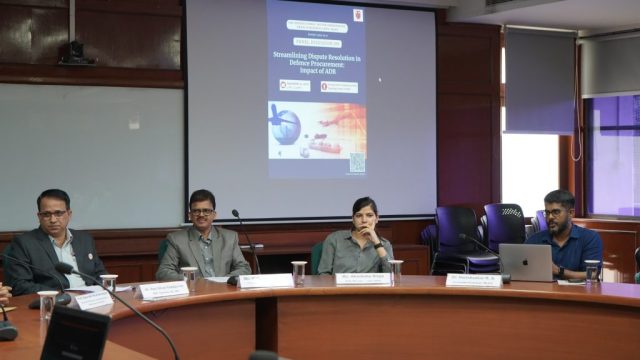
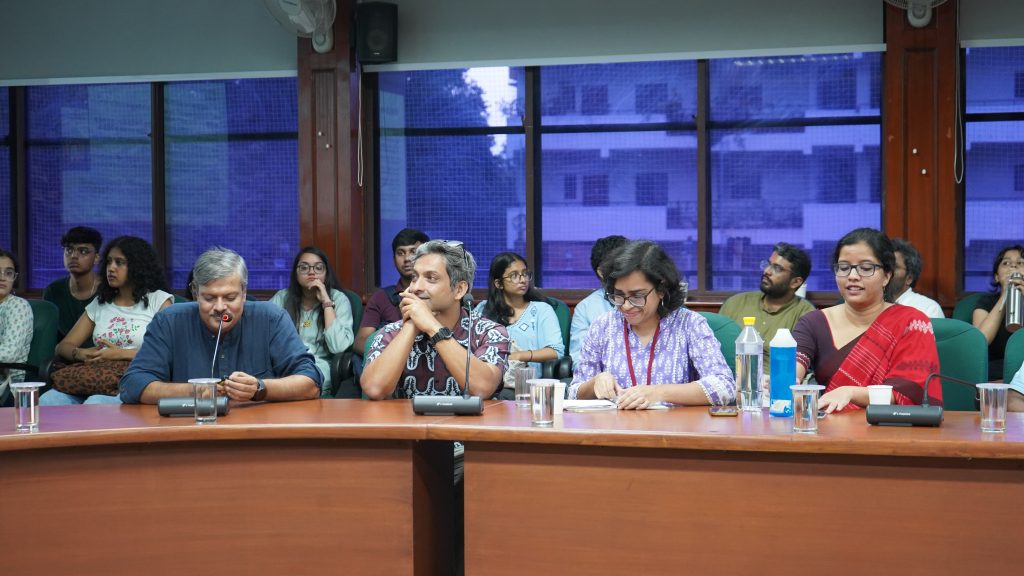 NLSIU hosted a panel discussion on ‘Inequality in India: Recent Debates and Policy Implications’ on Wednesday, September 10, 2025. Dr. Arjun Jayadev of Azim Premji University and Dr. Himanshu of Jawaharlal Nehru University were in conversation with NLS faculty Dr. Shiuli Vanaja and Dr. Angarika Rakshit.
NLSIU hosted a panel discussion on ‘Inequality in India: Recent Debates and Policy Implications’ on Wednesday, September 10, 2025. Dr. Arjun Jayadev of Azim Premji University and Dr. Himanshu of Jawaharlal Nehru University were in conversation with NLS faculty Dr. Shiuli Vanaja and Dr. Angarika Rakshit.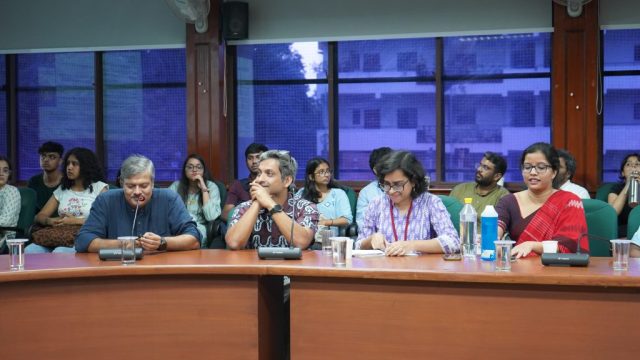
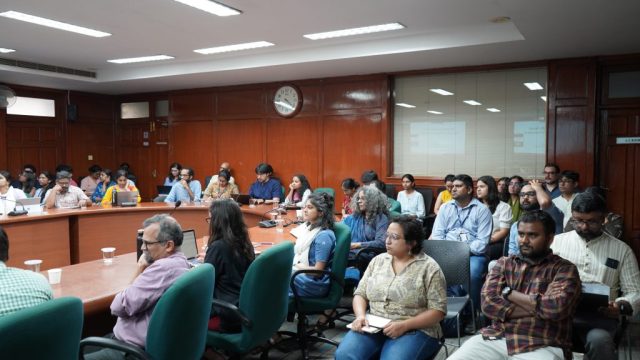
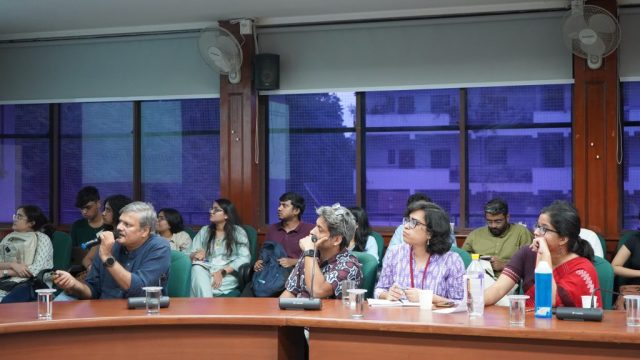
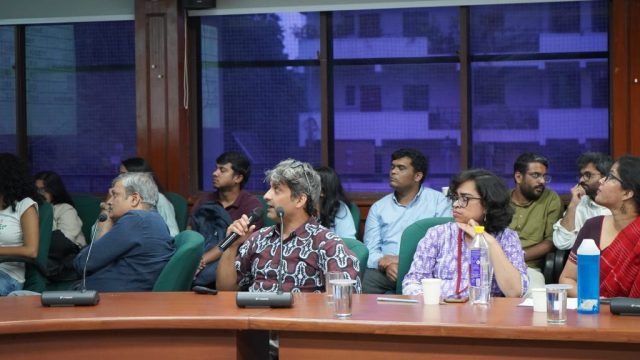
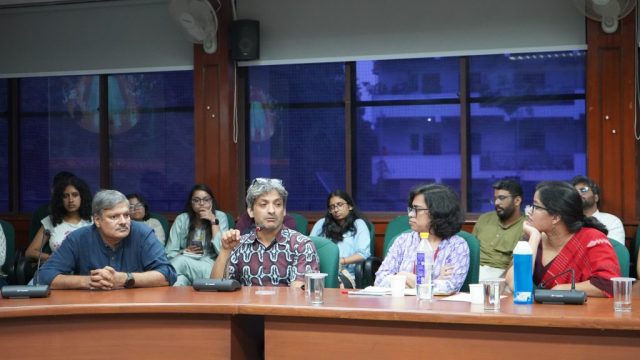
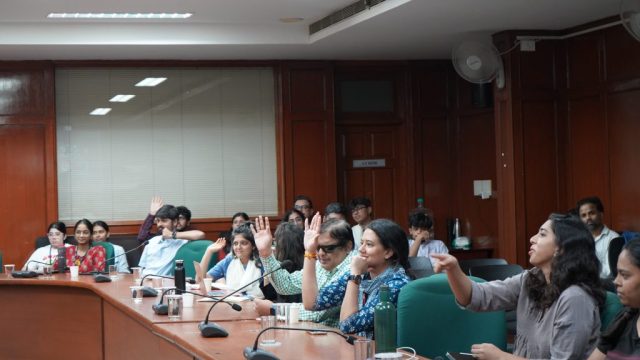
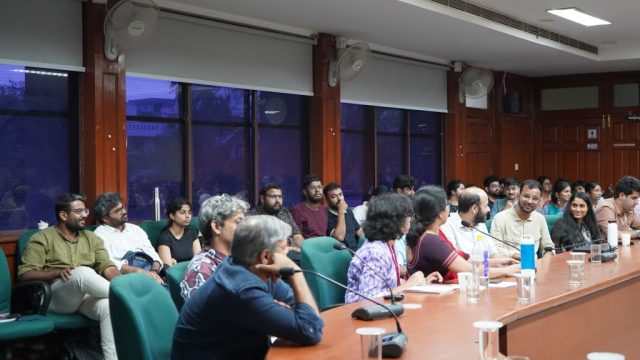
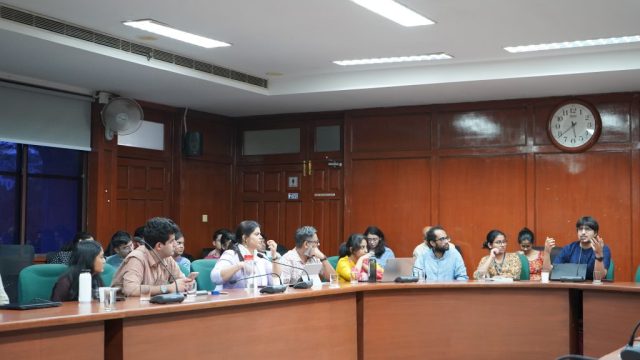
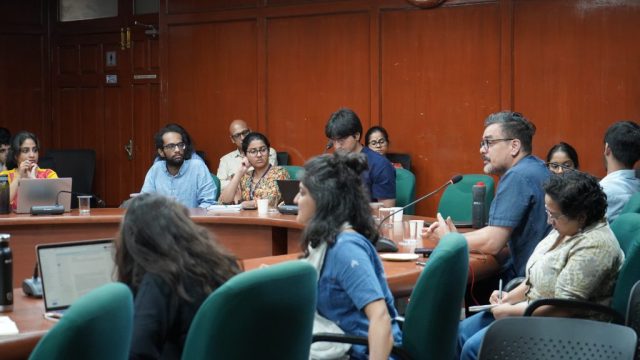
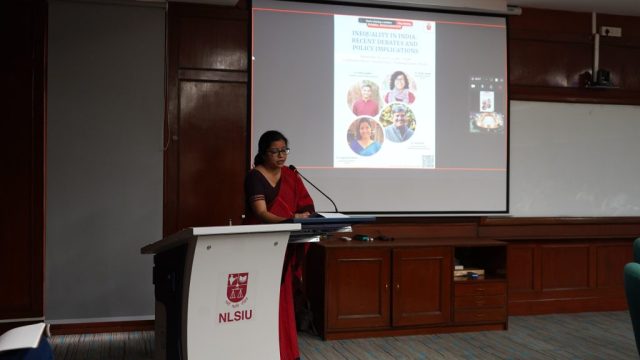
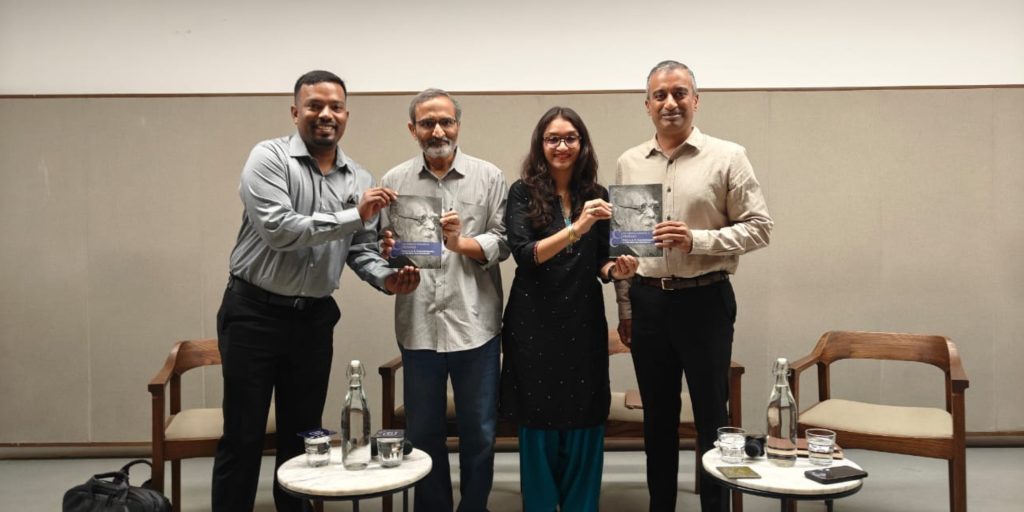 NLSIU organised a book discussion on the volume ‘The Cambridge Companion to Periyar’ on Sunday, September 14, 2025.
NLSIU organised a book discussion on the volume ‘The Cambridge Companion to Periyar’ on Sunday, September 14, 2025.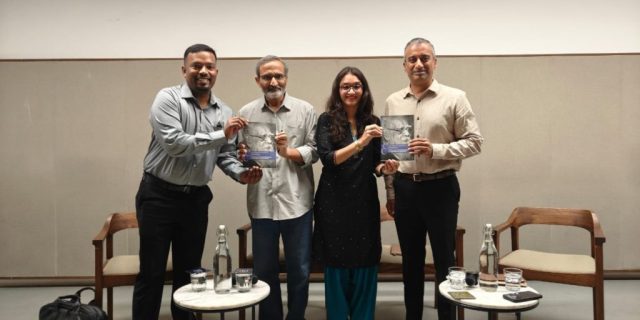
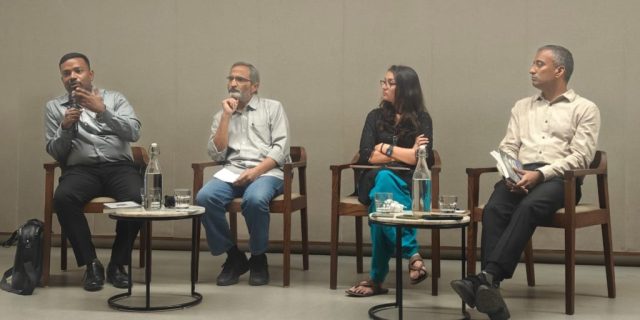
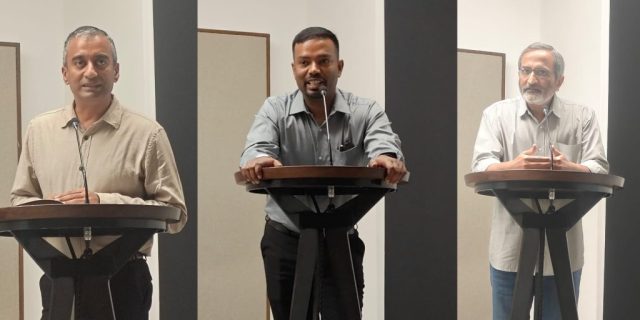
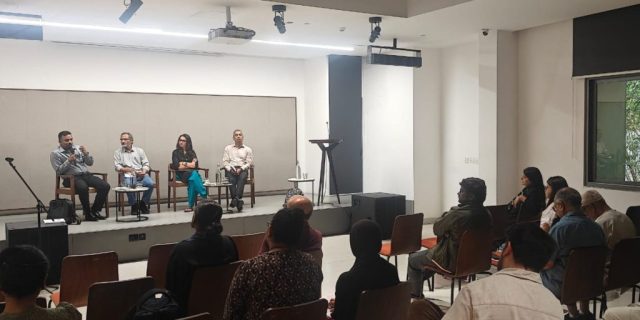
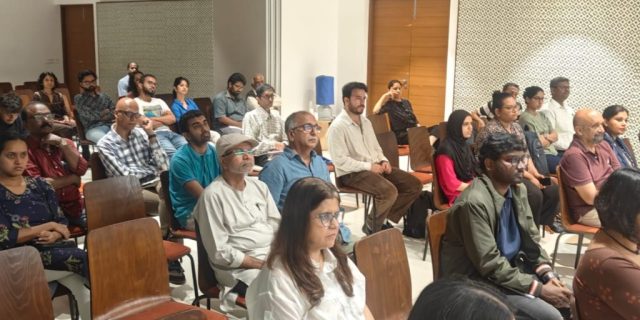
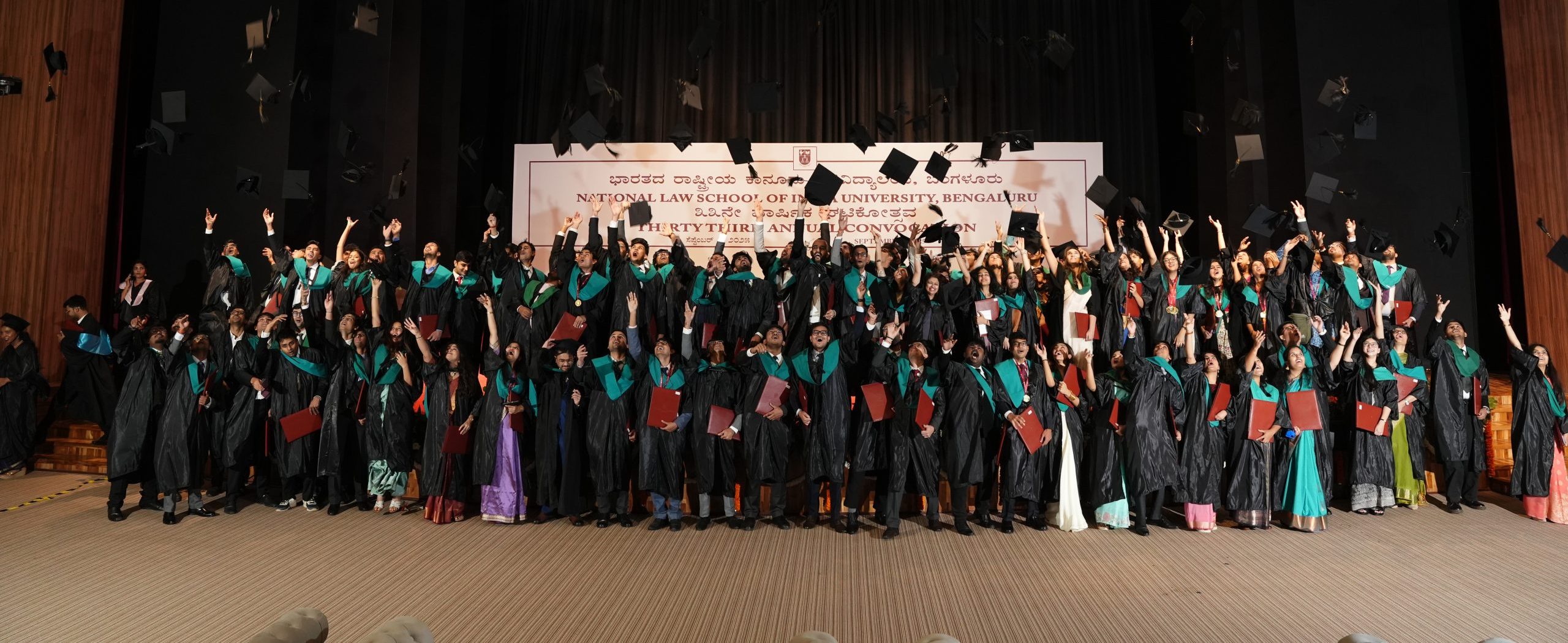
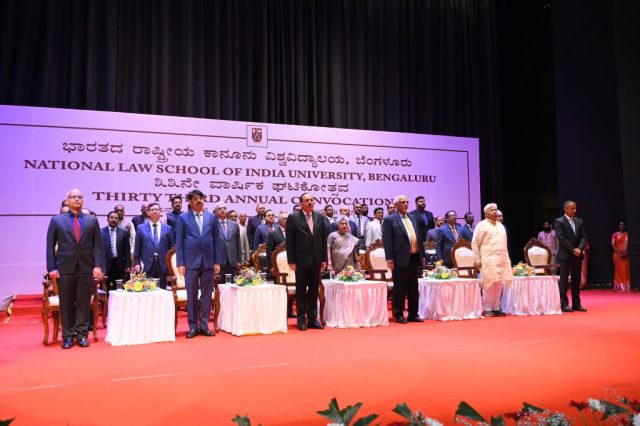
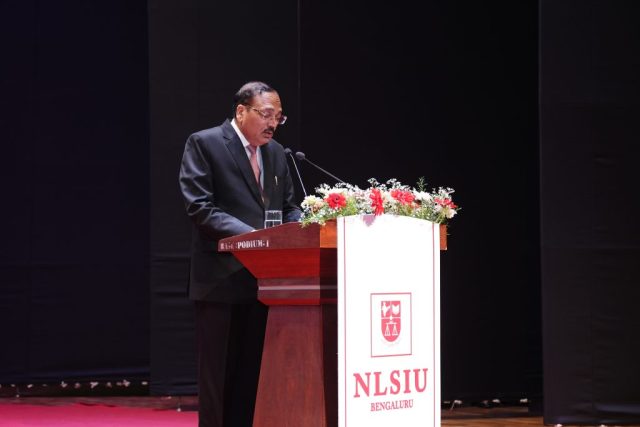
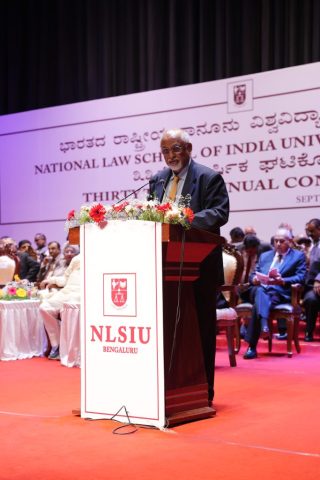
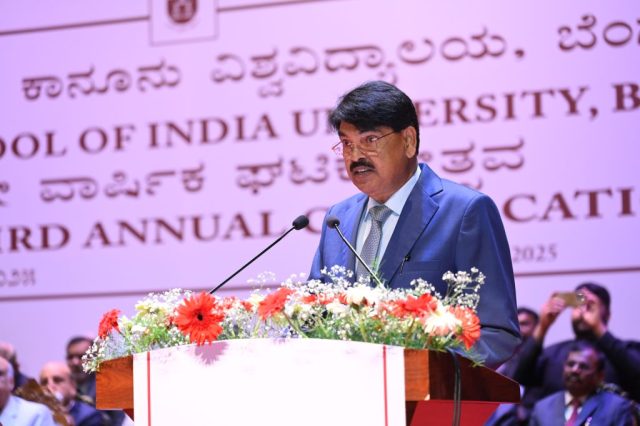
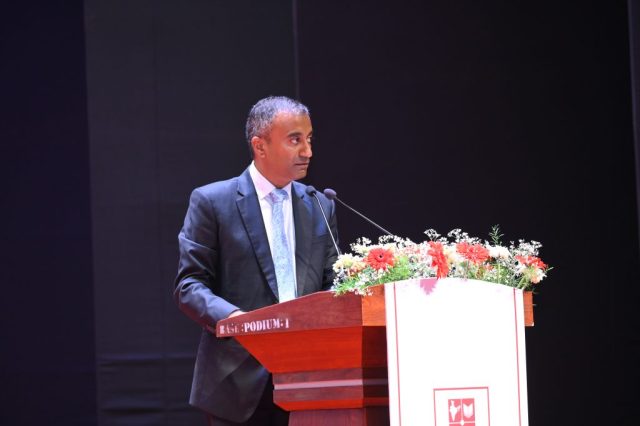
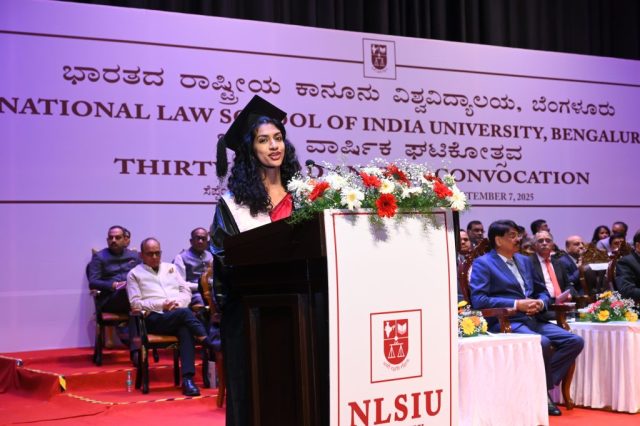
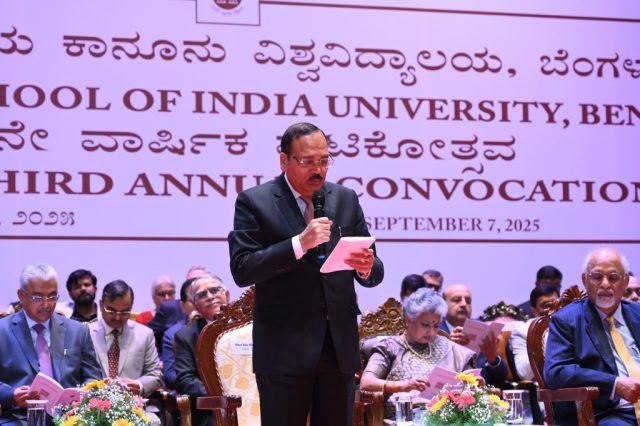
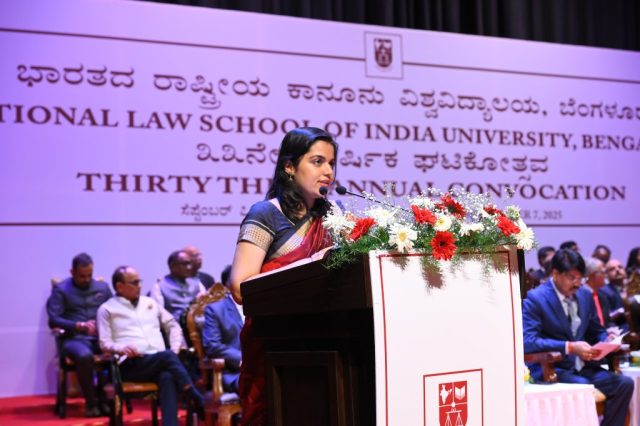
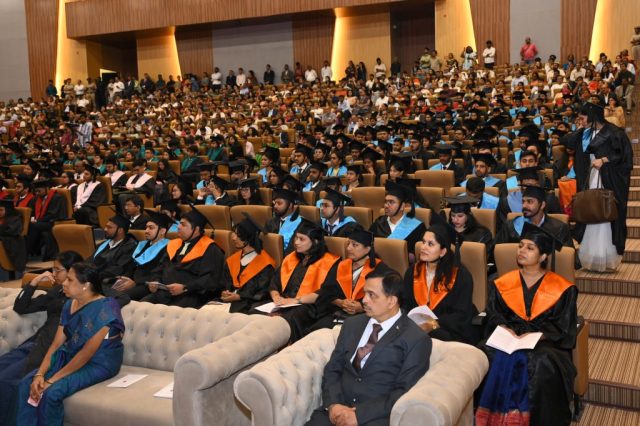
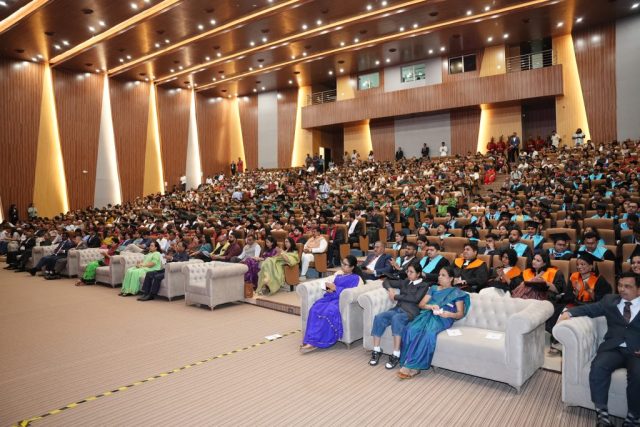
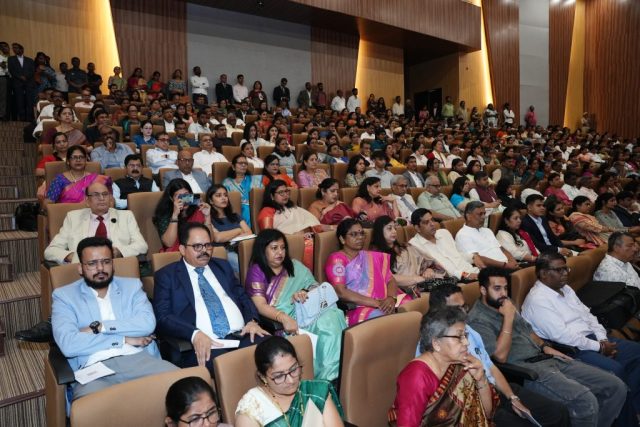
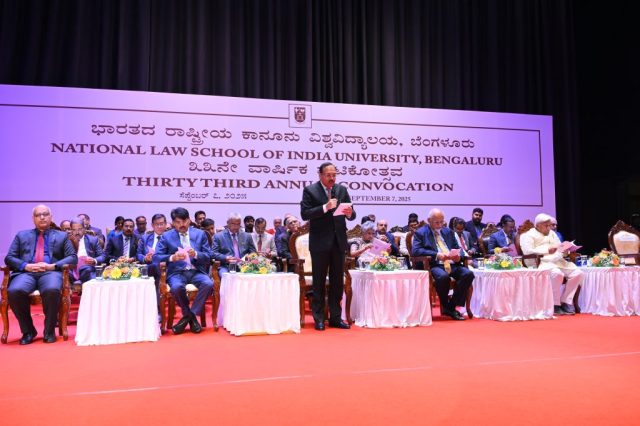
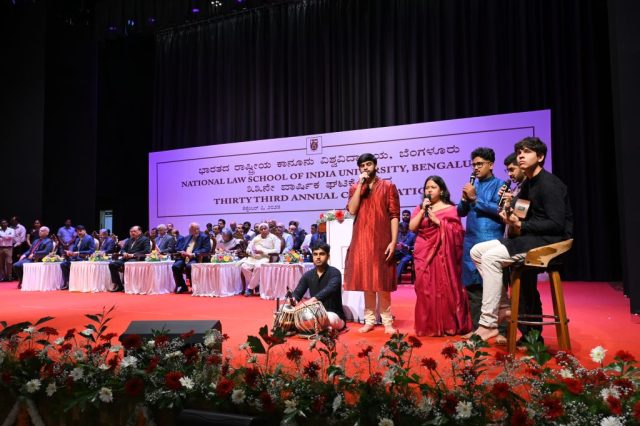
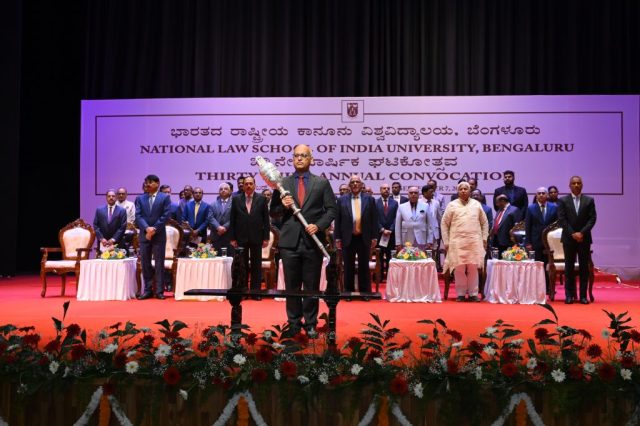
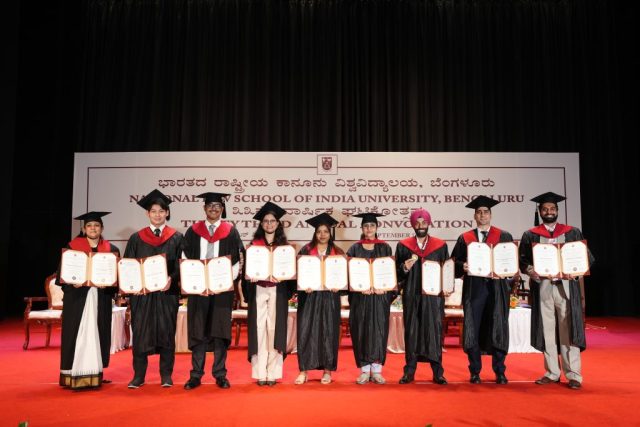
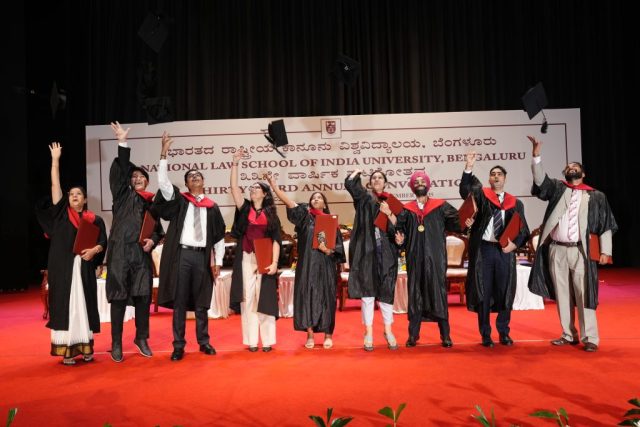
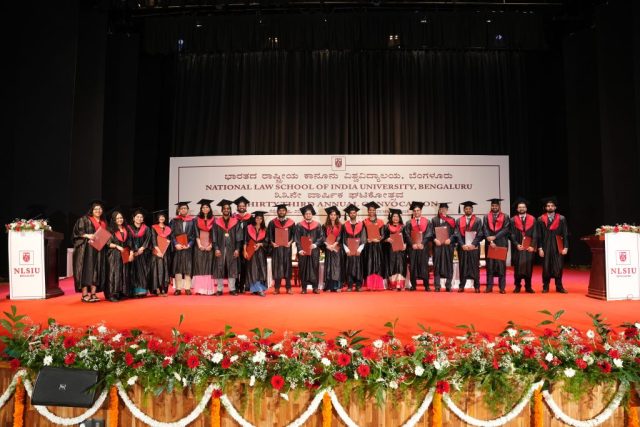
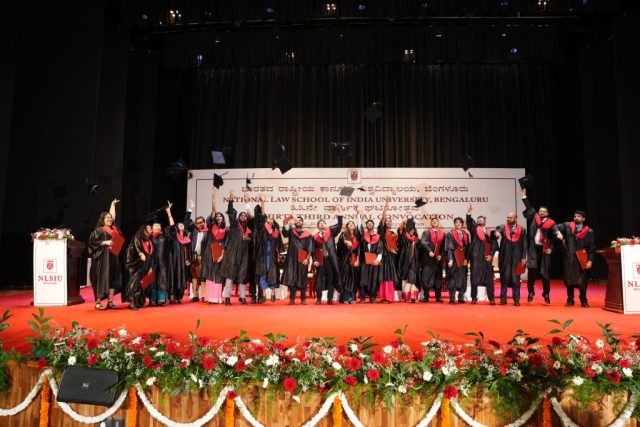
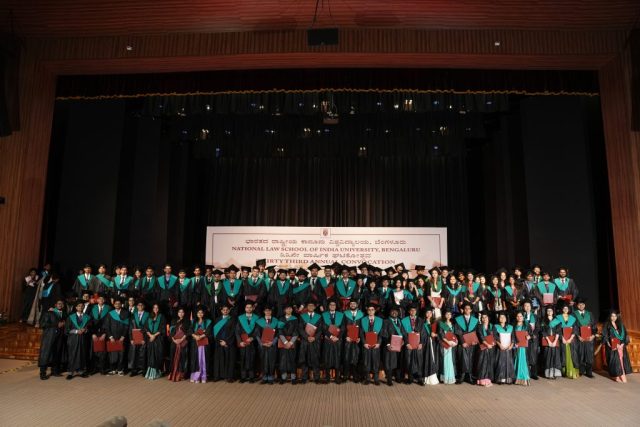
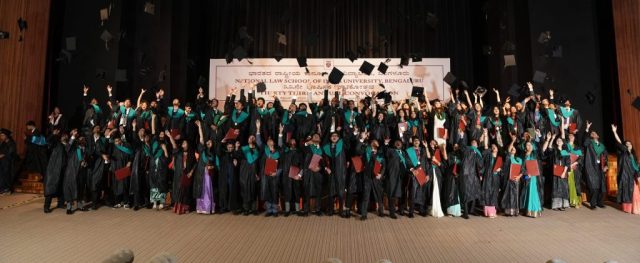
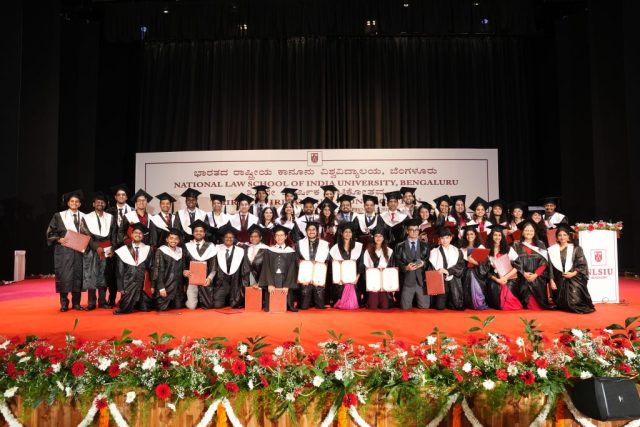
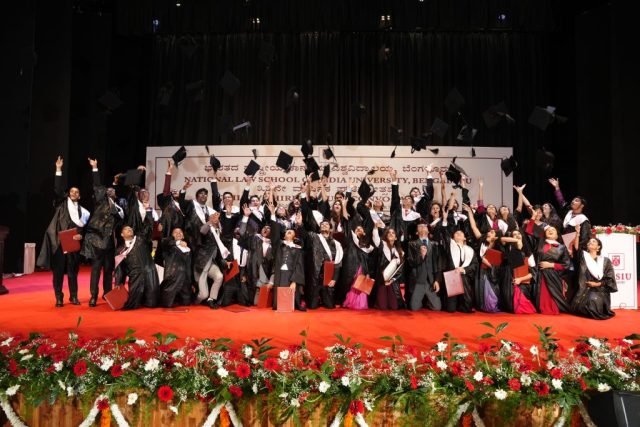
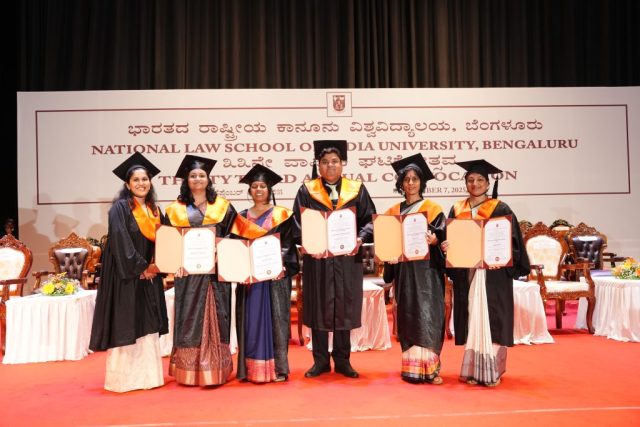
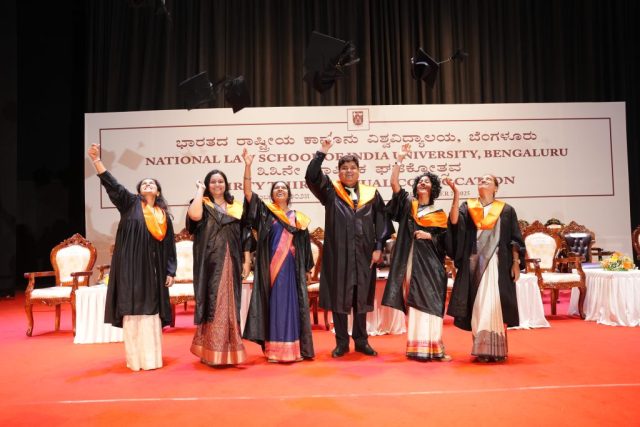
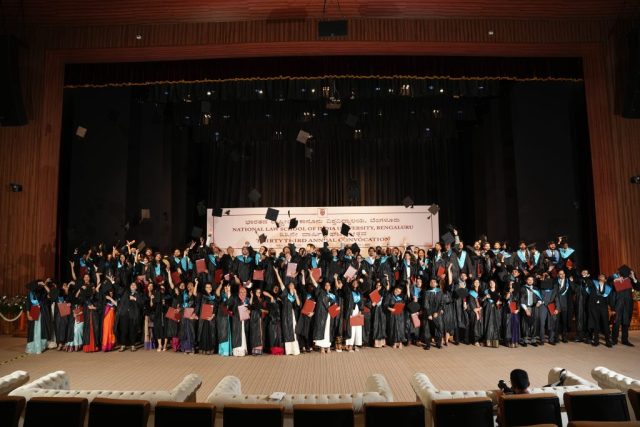
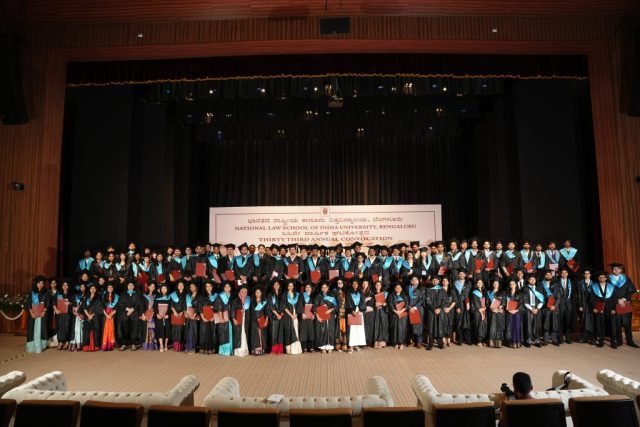
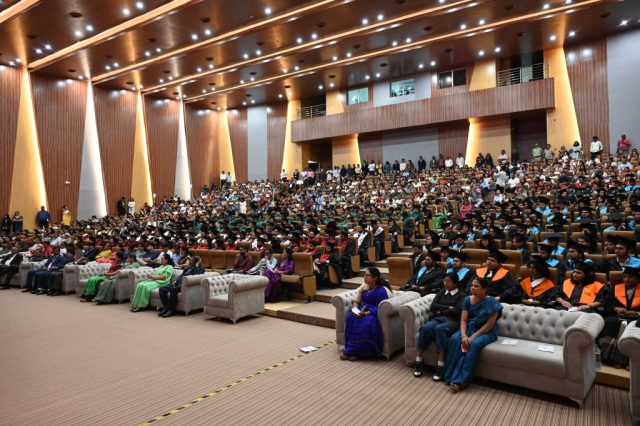
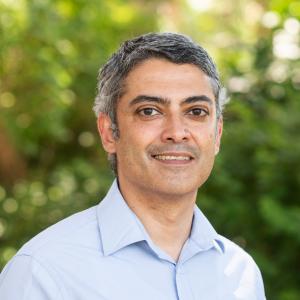 The
The 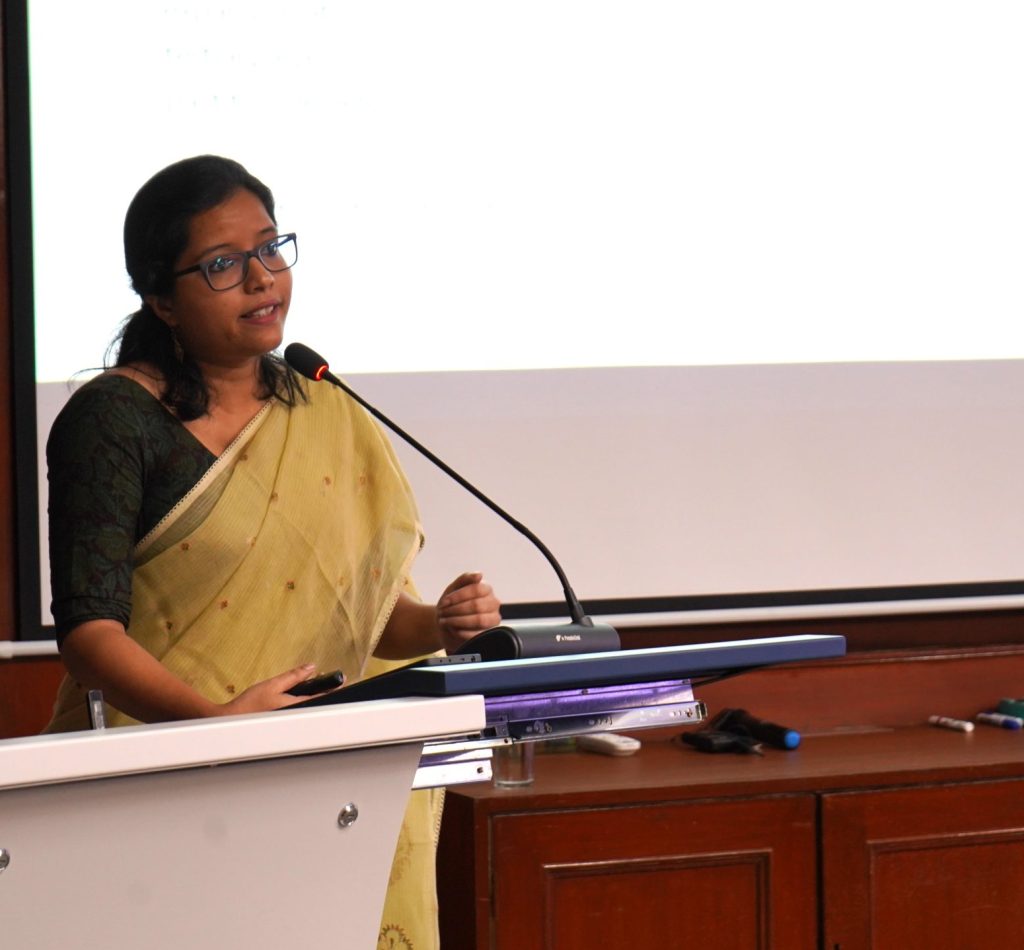 At this week’s faculty seminar,
At this week’s faculty seminar, 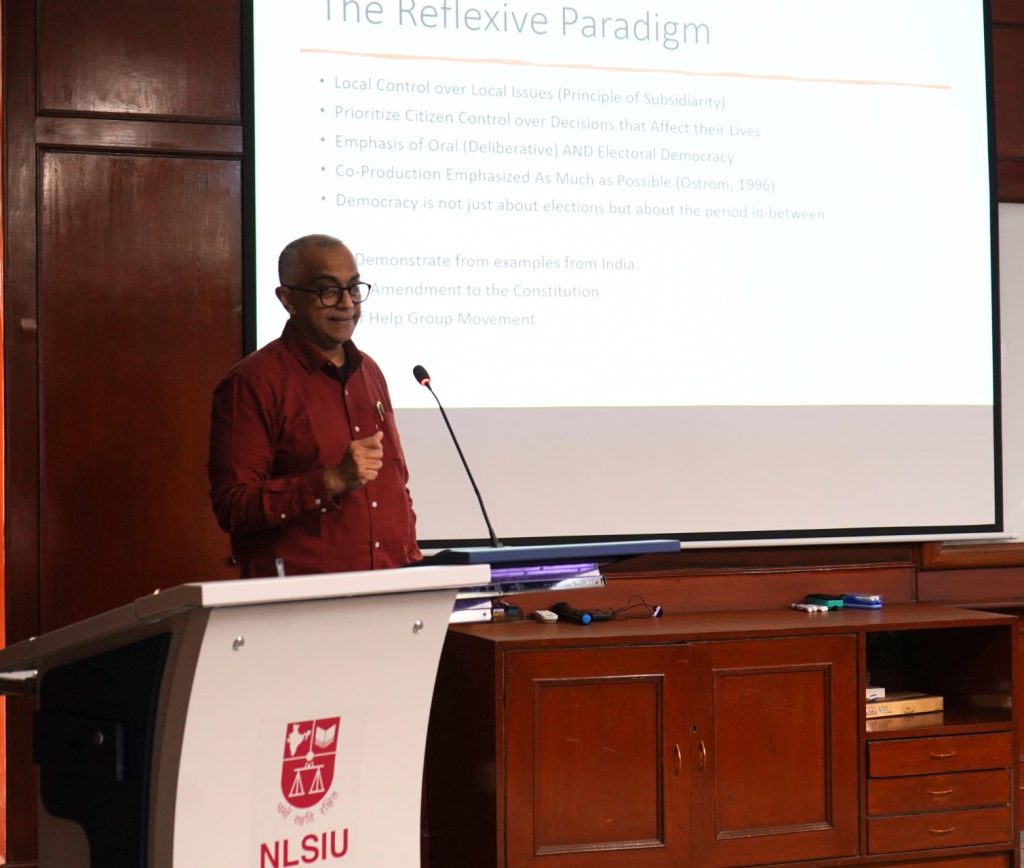
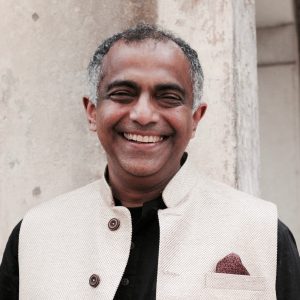
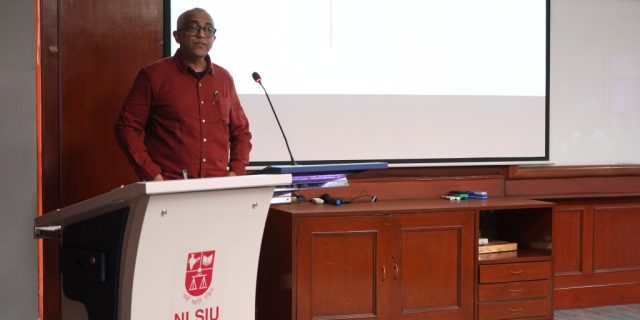
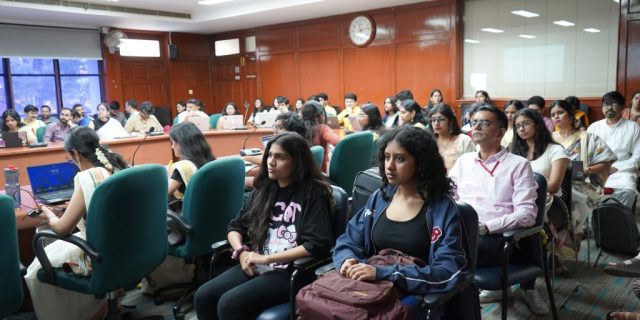
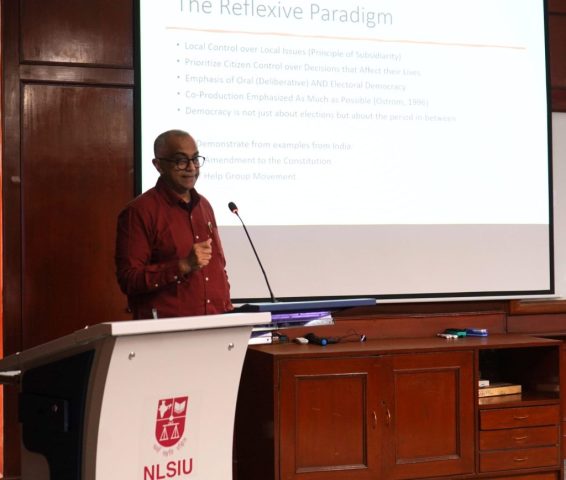
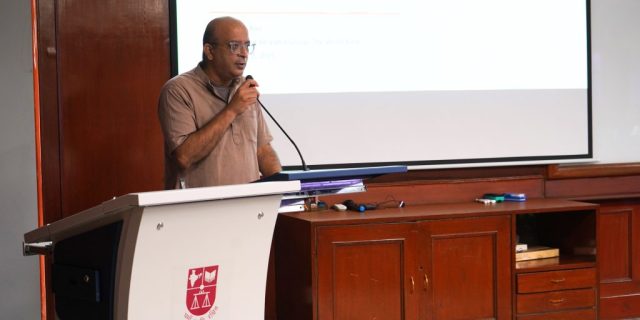
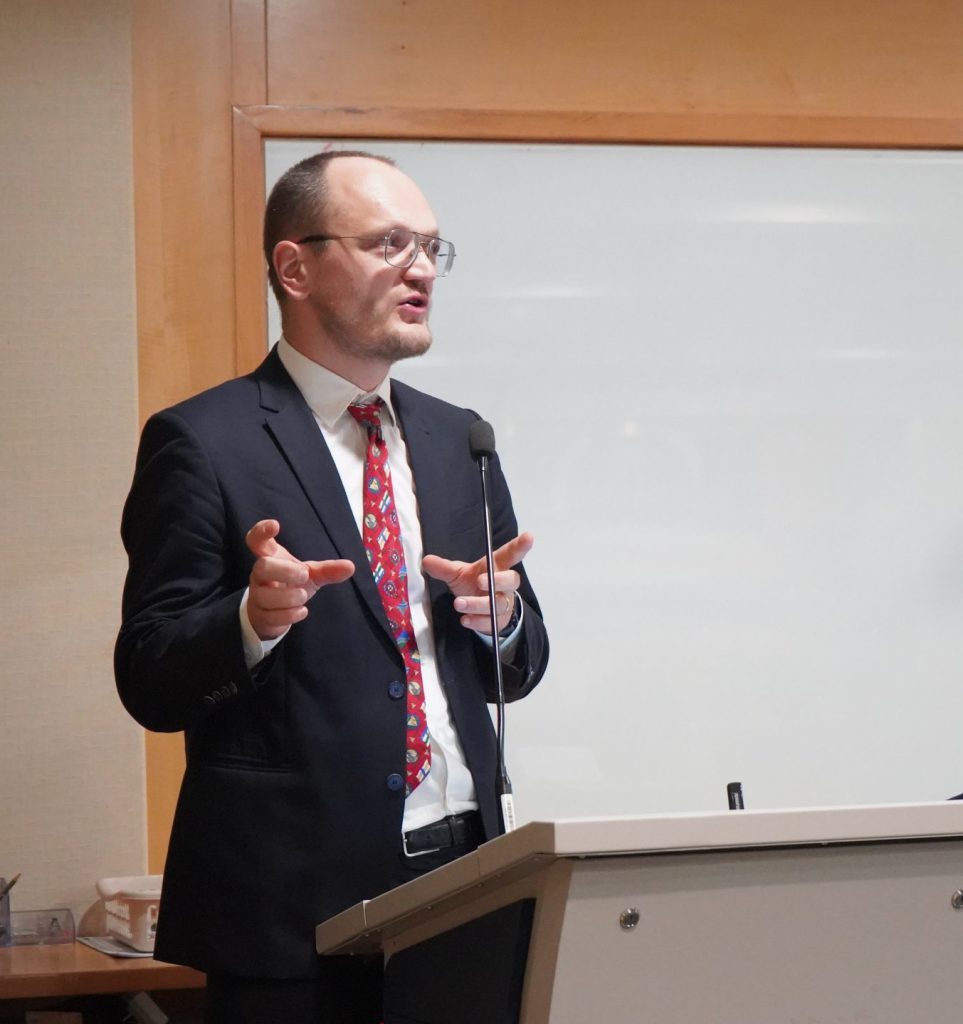 The
The 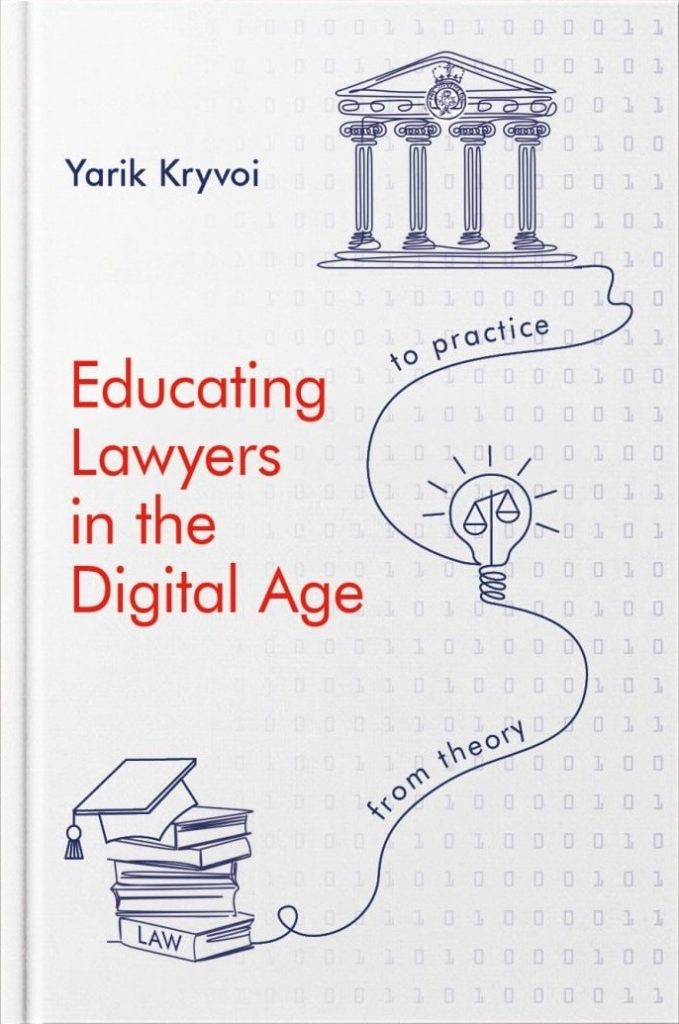 About the Book
About the Book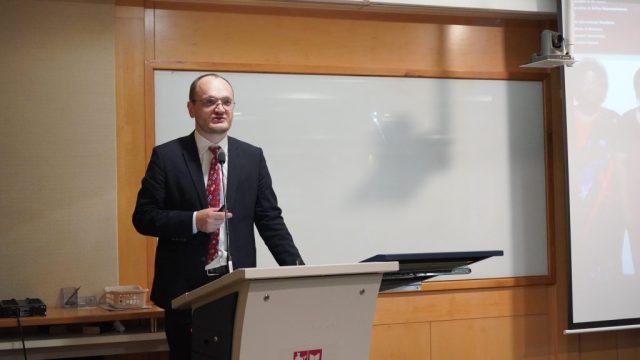
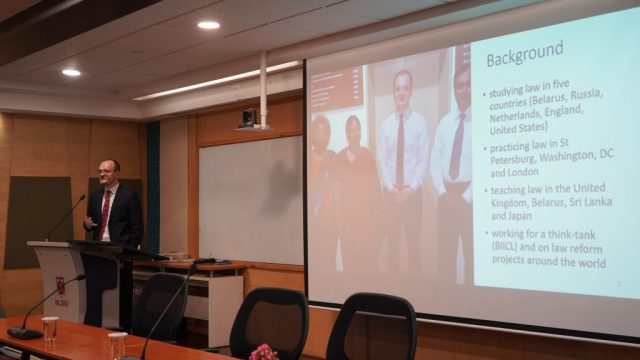
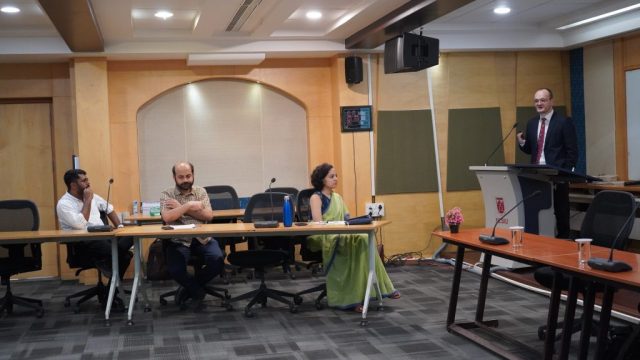
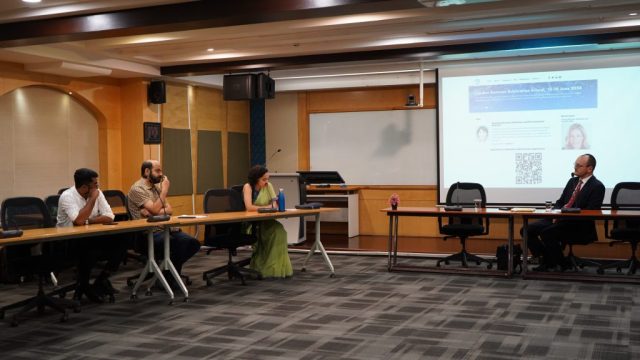
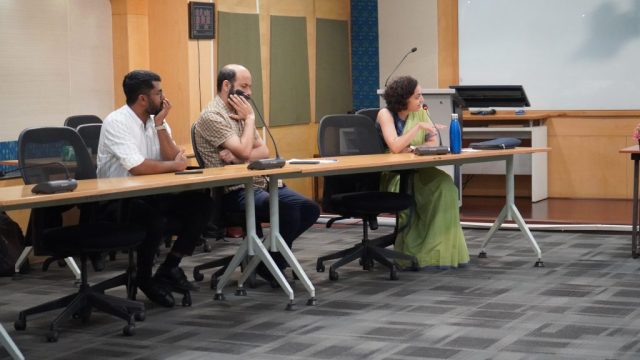
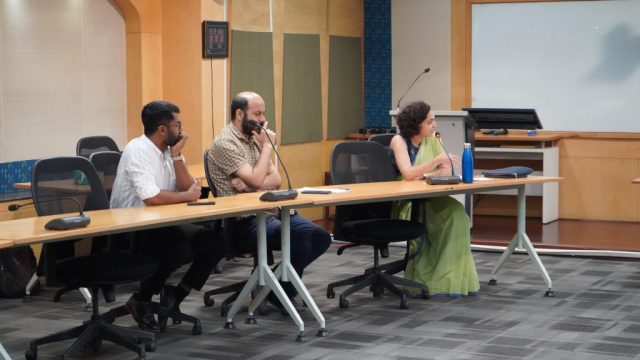
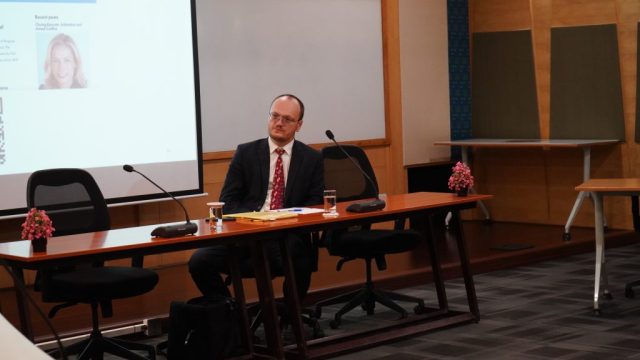
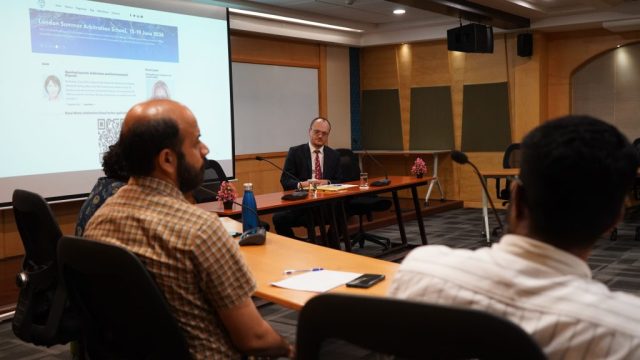
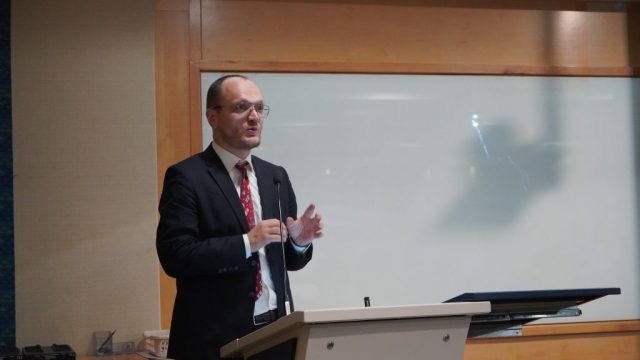
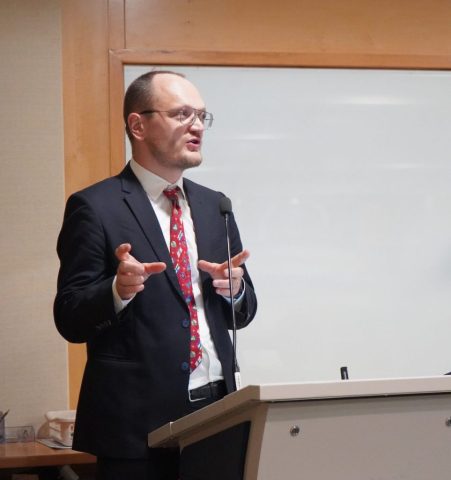
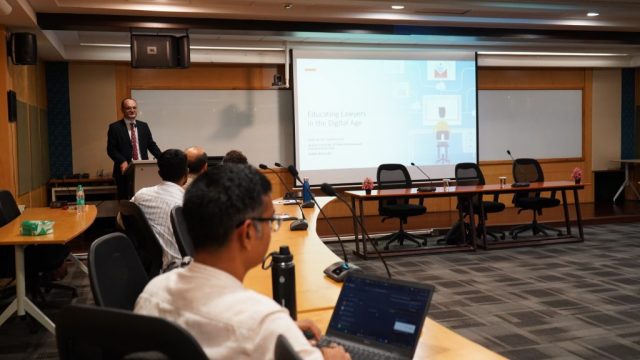
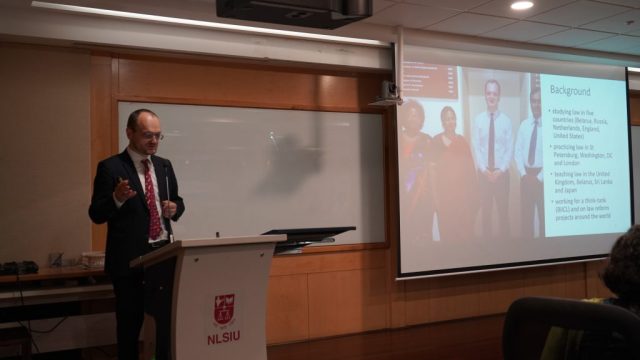
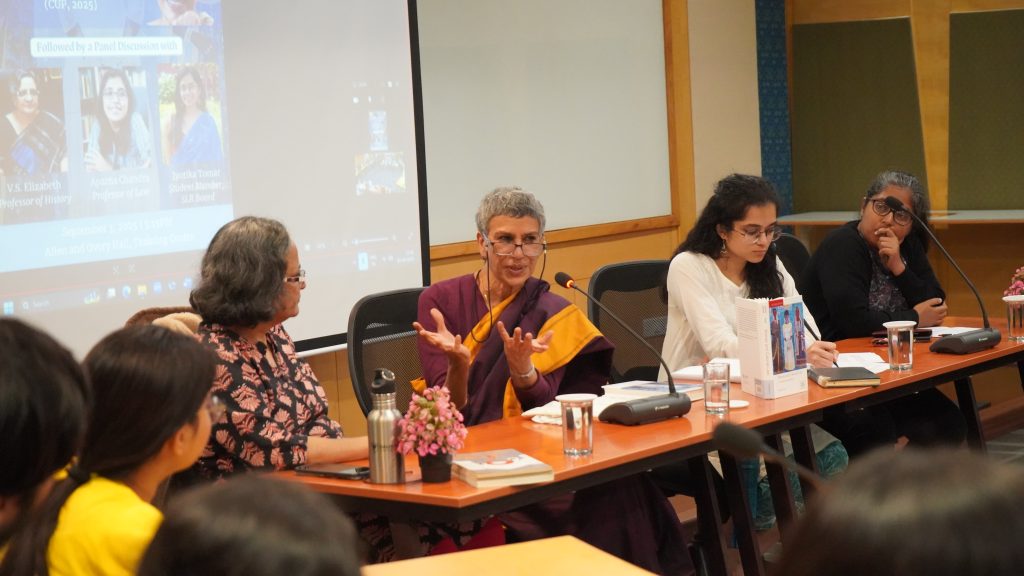 The
The 